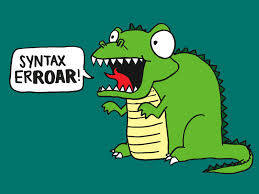 Grover is a semantic annotation markup syntax based on the grammar of the English language. Grover is related to the Object Management Group’s Semantics of Business Vocabulary and Rules (SBVR), explained later.
Grover is a semantic annotation markup syntax based on the grammar of the English language. Grover is related to the Object Management Group’s Semantics of Business Vocabulary and Rules (SBVR), explained later.
 Grover is a semantic annotation markup syntax based on the grammar of the English language. Grover is related to the Object Management Group’s Semantics of Business Vocabulary and Rules (SBVR), explained later. Grover syntax assigns roles to common parts of speech in the English language so that simple and structured English phrases are used to name and relate information on the semantic web. By having as clear a syntax as possible, the semantic web is more valuable and useful.
Grover is a semantic annotation markup syntax based on the grammar of the English language. Grover is related to the Object Management Group’s Semantics of Business Vocabulary and Rules (SBVR), explained later. Grover syntax assigns roles to common parts of speech in the English language so that simple and structured English phrases are used to name and relate information on the semantic web. By having as clear a syntax as possible, the semantic web is more valuable and useful.
An important open-source tool for semantic databases is SemanticMediaWiki that permits everyone to create a personal “wikipedia” in which private topics are maintained for personal use. The Grover syntax is based on this semantic tool and the friendly wiki environment it delivers, though the approach below might also be amenable to other toolsets and environments.
Basic Approach. Within a Grover wiki, syntax roles are established for classes of English parts of speech.
Subject:noun(s) -- verb:article/verb:preposition -- Object:noun(s)
refines the standard Semantic Web pattern:
SubjectURL -- PredicateURL -- ObjectURLwhile in a SemanticMediaWiki environment, with its relative URLs, this is the pattern:(Subject) Namespace:pagename -- (Predicate) Property:pagename -- (Object) Namespace:pagename.
- nouns
- In a Grover wiki, topic types are nouns, more precisely nounal expressions, are concepts. Every concept is defined by a specific semantic database query, these queries being the foundation of a controlled enterprise vocabulary. In Grover every pagename is the name of a topic and every pagename includes a topic-type prefix. Example:
Person:Barack ObamaandTitle:USA President of the United States of America, two topics related together through one or more predicate relations, for instance “has:this”. Wikis are organized into ‘namespaces’ — its pages’ names are each prefixed with a namespace-name, which function equally as topic-type names. Additionally, an ‘interwiki prefix’ can indicate the URL of the wiki where a page is located — in a manner compatible with the Turtle RDF language.
Nouns (nounal expressions) are the names of topic-types and or of topics; in ontology-speak, nouns are class resources or nouns are individual resources but rarely are nouns defined as property resources (and thereby used as a ‘predicate’ in the standard Semantic Web pattern, mentioned above). This noun requirement is a systemic departure from today’s free-for-all that allows nouns to be part of the name of predicates, leading to the construction of problematic ontologies from the perspective of common users.verbsIn a Grover wiki, “property names” are an additional ontology component forming the bedrock of a controlled semantic vocabulary. Being pages in the “Property” namespace means these are prefixed with the namespace name, “Property”. However the XML namespace is directly implied, for instance has:this implies a “has” XML Namespace. The full pagename of this property is “Property:has:this. The tenses of a verb — infinitive, past, present and future — are each an XML namespace, meaning there are separate have, has, had and will-have XML Namespaces. The modalities of a verb are also separate XML Namespace, may and must. Lastly the negation form for verbs (involving not) are additional XML Namespaces.
The “verb” XML Namespace name is only one part of a property name. The other part of a property name is either a preposition or it is a grammatical author. Together, these comprise an enterprise’s controlled semantic vocabulary.
- prepositions
- As in English grammar, prepositions are used to relate an indirect object or object of a preposition, to a subject in a sentence. Example: “John is at the Safeway” uses a property named “is:at” to yield the triple
Person:John -- is:at -- Store:Safeway. There are approximately about one hundred english prepositions possible for any particular verbal XML Namespace. Examples:had:from,has:untilandis:in. - articles
- As in English grammar, articles such as “a” and “the” are used to relate direct objects or predicate nominatives to a subject in a sentence. As for prepositions above, articles are associated with a verb XML Namespace. Example:
has:a:,has:this,has:these,had:somehas:someandwill-have:some.
adjectivesIn a Grover wiki, definitions in the “category” namespace include adjectives, such as “Public” and “Secure”. These categories are also found in a controlled modifier vocabulary. The category namespace also includes definitions for past participles, such as “Secured” and “Privatized”. Every adjective and past participle is a category in which any topic can be placed. A third subclass of modifiers include ‘adverbs’, categories in which predicate instances are placed.
That’s about all that’s needed to understand Grover, the Business Syntax for Semantic English! Let’s use the Grover syntax to implement a snippet from the Object Management Group’s Semantics of Business Vocabulary and Rules (SBVR) which has statements such as this for “Adopted definition”:
- adopted definition
- Definition: definition that a speech community adopts from an external source by providing a reference to the definition.
- Necessities: (1) The concept ‘adopted definition’ is included in Definition Origin. (2) Each adopted definition must be for a concept in the body of shared meanings of the semantic community of the speech community.
- Now we can use Grover’s syntax to ‘adopt’ the OMG’s definition for “Adopted definition”.
Concept:Term:Adopted definition -- is:within -- Concept:Definition
Concept:Term:Adopted definition -- is:in -- Category:Adopted
Term:Adopted definition -- is:a -- Concept:Term:Adopted definition
Term:Adopted definition -- is:also -- Concept:Term:Adopted definition
Term:Adopted definition -- is:of -- Association:Object Management Group
Term:Adopted definition -- has:this -- Reference:http://www.omg.org/spec/SBVR/1.2/PDF/
Term:Adopted definition -- must-be:of -- Concept:Semantic Speech Community
Term:Adopted definition -- must-have:some -- Concept:Reference
This simplified but structured English permits the widest possible segment of the populace to participate in constructing and perfecting an enterprise knowledge base built upon the Resource Description Framework.
- More complex information can be specified on wikipages using standard wiki templates. For instance to show multiple references on the “Term:Adopted definition” page, the “has:this” wiki template can be used:
{}- Multi-lingual text values and resource references would be as follows, using the wiki templates (a)
{}and (b){} {}
{}
One important feature of the Grover approach is its modification of our general understanding about how ontologies are built. Today, ontologies specify classes, properties and individuals; a data model emerges from listings of range/domain axioms associated with a propery’s definition. Instead under Grover, an ontology’s data models are explicitly stated with deontic verbs that pair subjects with objects; this is an intuitively stronger and more governable approach for such a critical enterprise resource as the ontology.







